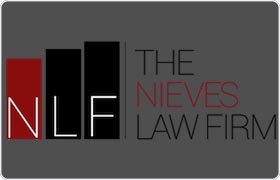Newark Juvenile Law Lawyer, California
Sponsored Law Firm
-
 x
x

Click For More Info:
-
The Nieves Law Firm, APC
505 14th St. Ste. 900 Oakland, CA 94612» view mapJuvenile Law We Take The Criminal Out Of Criminal Defense
The Nieves Law Firm, APC defends people charged with criminal and civil offenses throughout Alameda, Contra Costa, Marin, Solano and San Francisco counties.
800-338-6720
Ravinder Singh Johal
Juvenile Law, White Collar Crime, Felony, DUI-DWI, Criminal
Status: In Good Standing Licensed: 19 Years
Catherine Caroline Forbes
Divorce & Family Law, Juvenile Law
Status: In Good Standing Licensed: 16 Years
FREE CONSULTATION
CONTACT Jo-Anna Nieves Oakland, CA
Jo-Anna Nieves Oakland, CA AboutThe Nieves Law Firm, APC
AboutThe Nieves Law Firm, APC Practice AreasExpertise
Practice AreasExpertise
